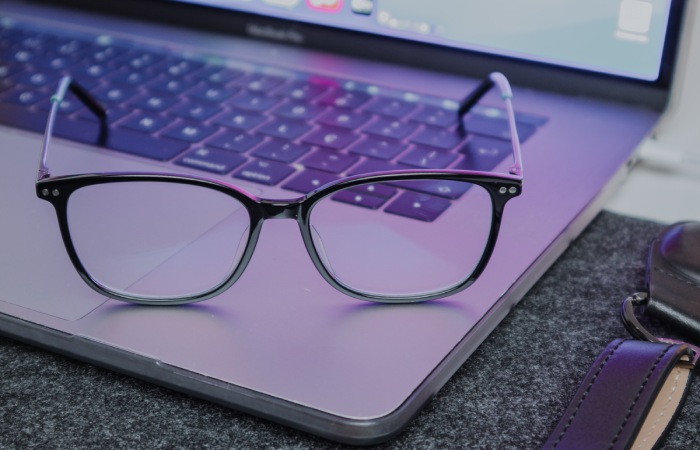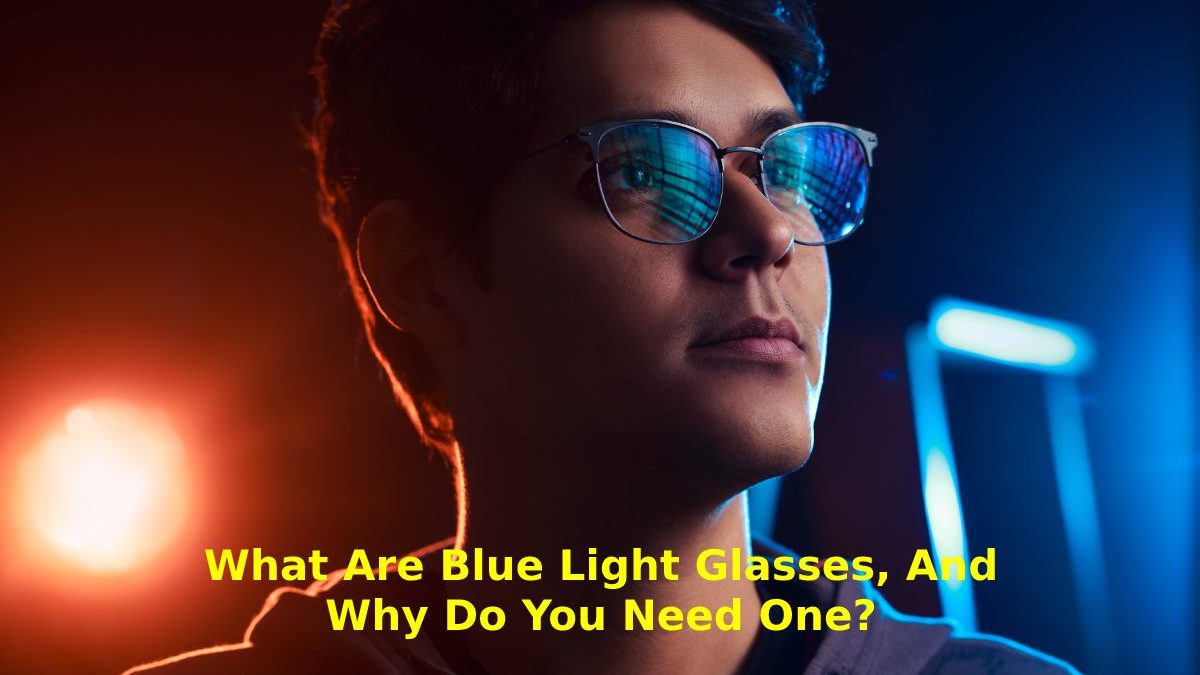Table of Contents
Introduction
Blue light glasses (sometimes called blue light filter glasses) contain lenses specifically designed to reduce the amount of blue light reaching the eye. These lenses screen blue light rays to help prevent them from entering the eye and causing potential damage. Blue light lenses usually have a slight yellow tint (to counteract the blue light), but this is generally not noticeable.
Natural blue light helps maintain a good circadian rhythm (the body’s natural sleep-wake cycle), helps lift mood, stimulates memory and cognitive function, and even increases mental acuity. In contrast, overexposure to artificial blue light emitted by LED light sources carries a risk to visual health. Hence, it is essential to take suitable measures to protect the eyes if devices with digital screens are use continuously.
What are Blue Light Glasses Made of?

Let’s take a closer look at three different brands of blue light glasses the famous Spanish brand Meller, the iconic Ray-Ban brand, and Omega Optix, Lentiamo’s supplier of blue light lenses.
The crystals or lenses of Meller blue light glasses are made from CR-39, a type of plastic polymer (resin). It’s the same material that many sunglasses lenses are made from. The material is naturally scratch-resistant and blocks a large part of the UV spectrum.
- Meller glasses: They are further separate into two types the Bio-based range (e.g. Bio Kubu Tigris), which is ready from the biodegradable plastic G850, and the usual metal frame range, which is made of stainless steel.
- Ray-Ban: Everglasses blue light glasses are also made from CR-39, with the frames made from TR90 (a type of durable nylon).
- Omega Optix: Brand Lentiamo blue light glasses lenses are 1) CR-39 for 1.5 reduction ratio, and 2) MR-8 for 1.6 and 1.67 reduction ratio. They call their lenses UV420 and the extra blue light / anti-reflective treatment “AR XBlue “.
What Other Properties do Blue Light Glasses Have?
Both CR-39 and MR-8 materials are rugged, a light, transparent resin that provides natural protection against UV rays.
But CR-39 lenses (Meller, Ray-Ban) offer much more. Are:
- Scratch-resistant.
- Resistant to chemical products, paints, etc.
- Thicker and slightly cheaper to produce.
Our Lentiamo UV420 MR-8 (Omega Optix) lenses offer even more benefits. Are:
- Softer than equivalent CR39 lenses, we can receive an extra layer of hardening treatment, which our shop provides free of charge.
- Shock resistant and generally more resistant to breakage due to the softer material.
- Thinner than equivalent CR39 lenses are most evident in the high reduction factors (1.6 +).
Risks of Overexposure to Blue Light
The use of digital devices that release blue light has multiplied in recent years. We constantly look at our mobile computers, which can be harmful to our eyes. Prolonged exposure to LED light sources can develop fatigue and visual stress, alter circadian rhythms or even lead to more severe eye diseases such as macular degeneration.
Eyestrain
The digital light produced by the screens of digital devices makes the eye have to make a more significant effort to focus. For this reason, when exposed for a prolonged period to the blue light of the LED light, symptoms such as headache, red, dry or tired eyes may develop.
Disturbance of Circadian Rhythms
Prolonged exposure to blue light emitted by digital screens reduces melatonin, the hormone responsible for sleep. For this reason, it is vital not to use digital devices before going to bed or to protect our eyes from them since our eyes perceive blue light and our body wakes up. So it is when sleep disturbances occur.
Macular Degeneration
Given our current pace of life, excessive exposure to blue light from LED light emitted by digital devices can cause macular degeneration in the long term, leading to vision loss.
You can protect your eyes against these risks by wearing anti-blue light glasses, which you can get at all of our centres.
Why Use Blue Light Filter Glasses?
Blue light protection glasses are recommend to deal with the blue light from the LED light. Some of the advantages are:
Permanent Protection
If you use devices with digital screens frequently, blue light filter glasses protect you by reducing the blue light exposure that reaches your eyes. As a result, you will escape some of the problems described above and enjoy better visual health.
Any Graduation
The blue light filter can also applied to any prescription; to monofocal, progressive, and occupational lenses, it is a filter that your prescription glasses will include.
Who Should use Them?
Blue light filter glasses are suitable for people of all ages. But, its use is especially recommended for office workers, students or people who are constantly expose to digital screens.
We recommend using it if:
- You spend most of the day working in front of a digital screen
- You also pay a large part of your leisure time using digital devices (mobile phones, tablets, TV)
- spend hours studying in front of the computer or other types of screens
- You spend a lot of time playing video games
- spend many hours watching television
And, don’t forget the little ones
Children also spend many hours in front of the television and the tablet. In addition, currently, the use of digital screens begins at an earlier age and in an excessive way on certain occasions. Therefore, you must also protect your eyes.
Think that their exposure will have been greater at advanced ages, so we must protect them from a young age.
Conclusion
Blue is, like ultraviolet, a type of light. Therefore the sky is blue, or we see it that way, because of the blue light. Although the natural source of blue light is the sun, the electronic devices we use more and more frequently also emit it. Computers, tablets, smartphones, and almost all digital screens give off blue light, even small quantities.
Also Read: Why your Business Website Needs Security Software in 2022?

